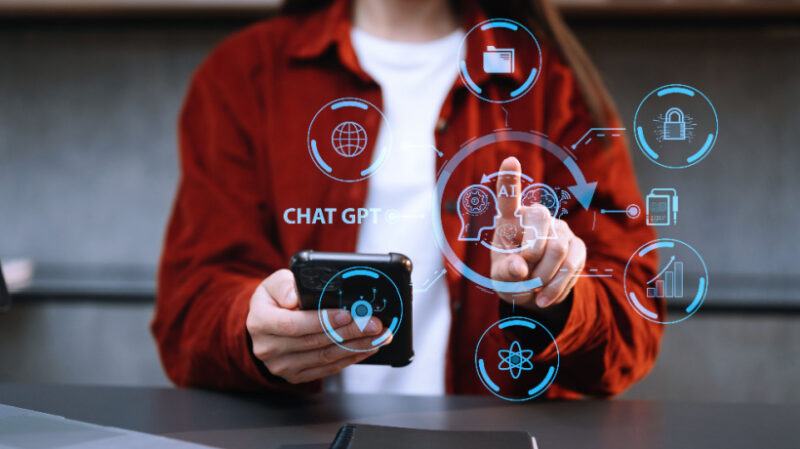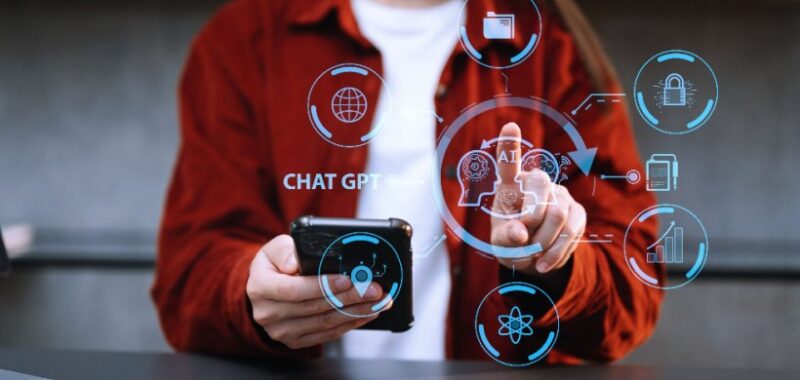
The Economic Potential And Global Impact Of Generative AI
Generative AI (gen AI) has completely revolutionized how professionals work, communicate, and complete daily activities. According to research, the economic potential of generative AI is massive as it will increase its impact by 15%-40%, which is equivalent to $2.6 to $4.4 trillion. The four areas the algorithm will impact the most are customer service, marketing and sales, software engineering, and research and development. By automating time-consuming tasks, creating high-value content, and targeting specific buyer personas, companies save money while creating new job roles.
The sectors that are said to experience the biggest chances and benefits are healthcare, finance, transportation, manufacturing, entertainment, big techs, and retail. Individuals can utilize the tool on a personal level and reorganize large sets of data, compose music, and create digital art. However, such technological advancement doesn’t come without its risks and challenges. Companies should be aware of them so they can tackle them efficiently.
4 Ways You Can Take Advantage Of Generative AI’s Economic Potential
1. Recruitment
Many organizations across the globe are now using AI tools to create content for recruitment as HR benefits highly during acquisition and onboarding. They ask the algorithm to create job postings based on skills, keywords, and older listings. In advanced cases, companies may design avatars for each candidate and provide personalized feedback. They may even craft personalized messages to communicate with applicants.
2. Gather Insights
Gathering and analyzing employee performance data is a time-consuming and tiresome procedure. Empowering AI to perform these tasks can free up time and allow HR professionals to focus on other activities. The algorithm can monitor everyone’s performance, provide feedback, notice skill gaps, and advise on development opportunities.
3. Communication
Imagine if every company had AI-based chatbots that acted as employee assistants. Some organizations have already utilized this process, offering 24/7 guidance and feedback to team members. Generative AI does skill-gap assessments and provides suggestions for learning courses and development ideas. Therefore, growth becomes personalized, and employees receive the guidance they need to progress.
4. Coding
Gathering and interpreting data is a crucial duty of HR professionals who need to identify patterns and predict employee behaviors. A big pharmaceutical company recently started using AI to process large sets of data and predict attrition rates in various departments. Therefore, the economic potential of generative AI becomes visible as it helps businesses retain their workforce and improve people’s experiences.
Pros Of Generative AI
1. Creation Of New Technical Positions
While traditional manual labor positions may fall into obscurity or decrease significantly, other, more technical jobs will be created. However helpful and life-saving AI-powered machines may be, they can’t operate on their own. Highly trained professionals must manage and direct them toward the right path.
2. Personalized Marketing
Marketing and advertising can already see the economic potential and gains of generative AI as they can create content based on their target audience’s preferences. As a result, they can engage potential buyers and create a much deeper bond with them. Targeted content encourages people to share it with like-minded individuals and build loyalty and trust toward a company.
3. Improved Safety
In factories where people operate complex machines and work with hazardous materials, avoiding accidents and ensuring safety are priorities. Machines and robots can perform these more laborious tasks with increased efficiency and without causing harm. As a result, companies don’t have to stress about extra costs resulting from job-related accidents, and employees can focus on other lower-risk tasks.
Cons Of Generative AI
1. Technical Expertise
While the economic potential of generative AI is valid, its implementation may prove challenging for many companies. Professionals with remarkable technical expertise must be recruited so they can operate the algorithm effectively. Therefore, many organizations that can’t afford such additions may be left behind and make massive efforts to catch up to their competition.
2. Increased Investment Resources
While adopting new technologies is exciting and helpful, organizations must invest resources in purchasing machines and infrastructure. However, not all companies can fit these improvements into their budgets. Even if they don’t necessarily have to buy technological tools, they may need to train team members so they learn new skills. So, their monetary investments must go to learning courses and training opportunities.
3. Loss Of Regular Jobs
One of the main fears professionals have regarding generative AI is that it may cost people their jobs. This is true to a certain extent, as machines can take over labor jobs. They may also replace humans in positions requiring analyzing and gathering technical data. As a result, one of the primary concerns is that they may lose their jobs, leading to social unrest.
4. Privacy Considerations
Despite the immense creativity generative AI provides, ethical considerations regarding accountability, bias, and privacy arise. For instance, can companies fully trust an AI tool to process their employees’ sensitive data safely? Also, can AI make unbiased and objective decisions? These matters should be addressed early on and companies must devise plans to effectively treat the gray areas.
5. Legal Responsibilities
ChatGPT has already raised criticism regarding copyrights. As generative AI creates content based on existing material, doesn’t that mean that it infringes upon copyrights? This consideration creates the necessity for new regulations and legal frameworks to ensure algorithms are used ethically. Professionals must also refrain from copying content verbatim since they may receive copyright strikes.
Is Generative AI Biased? How Can You Solve This?
We’ve already established the economic potential of generative AI and the risks it possesses. However, is there an even bigger Artificial Intelligence challenges you should know about? Learning or algorithm bias refers to societal biases and inequities that are transferred from humans to machines. Since people train AI-based algorithms, they often convey the same prejudices, meaning that machines can’t be objective.
For instance, face recognition programs trained with images of people from a particular race will probably stumble upon errors when trying to identify other races. Additionally, based on the language and vocabulary humans use to teach generative AI, the latter may form gender, ethnicity, and race bias. Discrimination, though, is not an inherent part of machines. Humans transfer it based on their own unfair beliefs. Consequently, you should ensure fairness and inclusivity when training your algorithm.
Conclusion
Generative AI can significantly change the face of business operations, as employees might spend less time on manual tasks that algorithms automate and streamline. Therefore, professionals may spend more time on human interactions, communicating more efficiently with each other instead of being buried under large sets of data. Chatbots could even become people’s companions as they guide them through daily activities and act as their personal assistants. However, companies should be aware of the potential pitfalls involved before implementing AI in their organizations.

